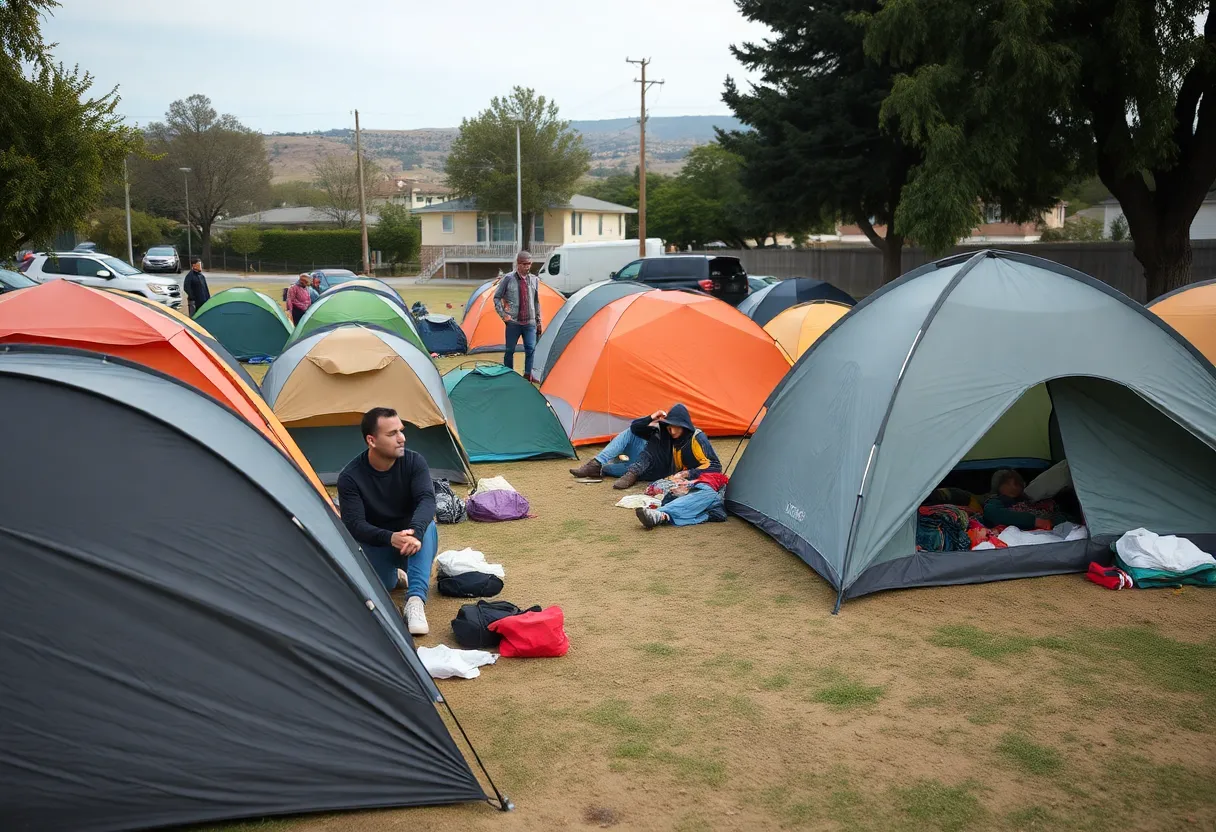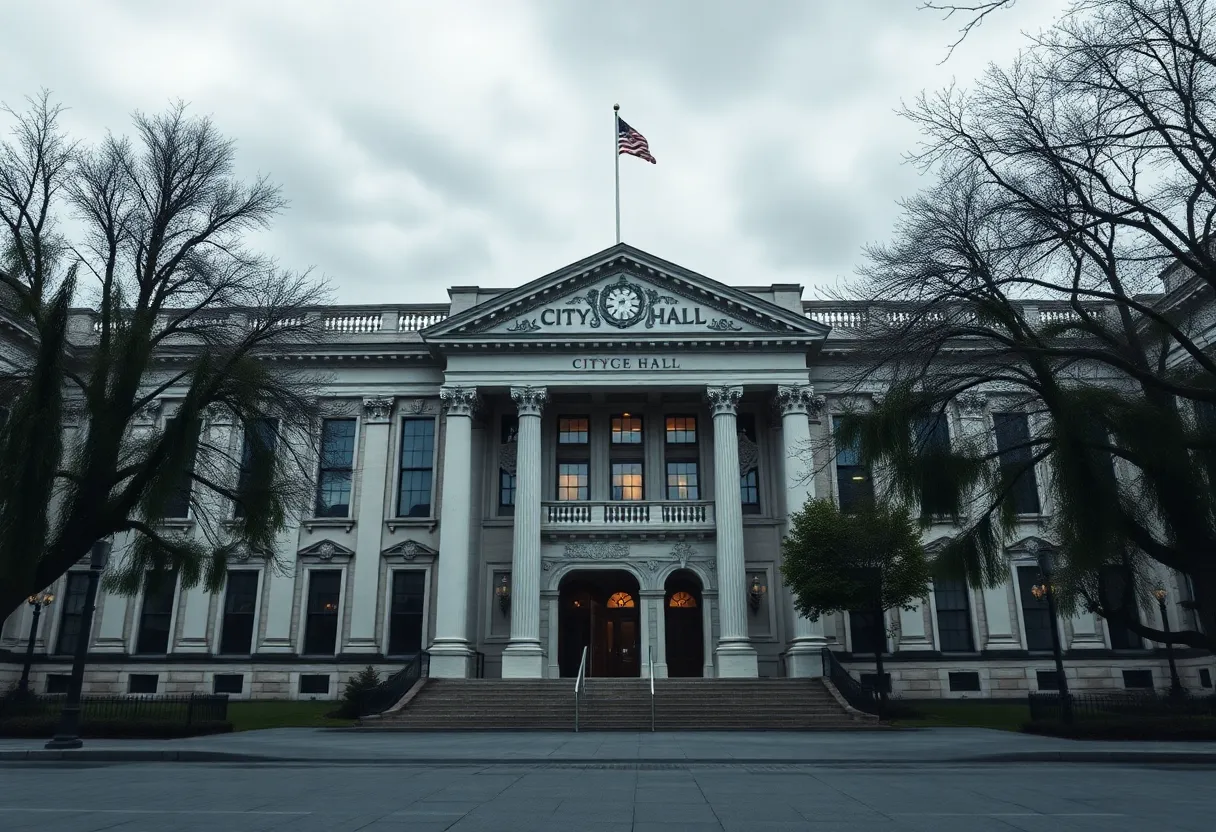News Summary
California Governor Gavin Newsom has announced a $3.3 billion financial initiative aimed at addressing homelessness in the state. The plan focuses on enhancing housing options, expanding treatment resources, and enforcing clearances of homeless encampments while ensuring individuals have access to shelter. Local leaders and organizations express cautious optimism, although concerns about legal constraints and long-term solutions persist. With over 771,500 individuals experiencing homelessness in California, the urgency for effective strategies to mitigate this crisis is greater than ever.
California Governor Gavin Newsom has unveiled a substantial financial plan amounting to $3.3 billion aimed at tackling the ongoing issue of homelessness in the state. This commitment intends to enhance housing options, expand treatment resources, and clear homeless encampments across California.
The funds designated for this initiative will focus on the implementation of a new model ordinance which aims to prohibit homeless camps while prioritizing both shelter provision and necessary services. Under this ordinance, local officials are required to inform individuals living in encampments of upcoming clearances and must provide shelter options before any such actions are taken.
City leaders in Chico have shown support for this ordinance, acknowledging its potential benefits, although concerns remain due to legal constraints imposed by the Warren Settlement. This settlement limits enforcement capabilities when sufficient shelter is unavailable. City Council Member Addison Winslow expressed optimism about applying the model ordinance as a long-term solution to addressing homelessness in the area.
Executive Director of the Good News Rescue Mission, Jonathan Anderson, voiced cautious optimism regarding Newsom’s plan. He highlighted ongoing efforts to establish a new adult day center aimed at providing residents with better access to resources and services.
Homelessness remains a critical issue in California, with an estimated 771,500 individuals experiencing homelessness. This figure represents nearly a quarter of the total homeless population across the United States. The latest directive from Newsom mandates that encampments must be cleared within 48 hours. During this period, officials are also required to safeguard individuals’ belongings for at least 60 days and collaborate with local organizations to assist those displaced by the clearances.
As of 2024, California cities reported having approximately 76,000 emergency shelter and transitional housing beds. Experts estimate that the state requires more than double that number to effectively accommodate its homeless population. Newsom has stressed the urgency of addressing the homelessness crisis, indicating that the time for inaction has passed and emphasizing there are no longer any justifications for delays in action.
This directive follows a similar effort from last year aimed at clearing homeless encampments which faced notable opposition from human rights organizations advocating for the rights of the homeless. Critics have pointed out that the 2024 order may not bring long-term solutions, especially given the emphasis on enforcement and potential harm to the homeless communities.
Recent data indicates a national homeless rate increase of 18% from 2023 to 2024 and only a 3% rise in California, with unsheltered homelessness rising marginally by 0.4%. California has previously invested tens of billions of dollars in programs designed to address homelessness and has conducted audits to assess these initiatives’ effectiveness. However, reports indicate a lack of comprehensive and clear data demonstrating the impact of these various programs.
In contrast to California, New York has the second-largest homeless population in the United States, followed by states like Washington, Florida, and Massachusetts. In other regions, states like Utah have enacted legislation addressing drug use in homeless shelters and are making strides toward developing comprehensive housing program plans.
While some city leaders voice their concerns about being unfairly blamed for the escalating homelessness crisis, they continue to advocate for sustained funding and systemic solutions to improve the situation significantly. There is ongoing debate regarding the balance between enforcement actions and the need for stable housing and employment opportunities for homeless populations.
California’s larger cities, such as San Francisco and Los Angeles, are amplifying their efforts to clear encampments while simultaneously working to provide increased availability of shelter beds. As Governor Newsom’s administration rolls out this extensive plan, the task of effectively mitigating homelessness in California presents both challenges and opportunities moving forward.
Deeper Dive: News & Info About This Topic
- Deseret: Newsom’s Next Step in Tackling California’s Homelessness Problem
- ABC10: Governor Newsom’s Homelessness Plan
- NBC Palm Springs: Newsom Pushes for Model Ordinances
- AP News: California Homelessness Initiatives
- Politico: California Voter Frustration on Homelessness
- Wikipedia: Homelessness in the United States
- Google Search: California homelessness
- Google Scholar: Homelessness Policy California
- Encyclopedia Britannica: Homelessness
- Google News: California homelessness 2025

Author: Anaheim Staff Writer
The Anaheim Staff Writer represents the experienced team at HEREAnaheim.com, your go-to source for actionable local news and information in Anaheim, Orange County, and beyond. Specializing in "news you can use," we cover essential topics like product reviews for personal and business needs, local business directories, politics, real estate trends, neighborhood insights, and state news affecting the area—with deep expertise drawn from years of dedicated reporting and strong community input, including local press releases and business updates. We deliver top reporting on high-value events such as major conventions at the Anaheim Convention Center, including NAMM and VidCon, exciting games at Angel Stadium and Honda Center, and developments at Disneyland Resort Our coverage extends to key organizations like the Anaheim Chamber of Commerce and Visit Anaheim, plus leading businesses in hospitality, entertainment, and innovation that power the local economy As part of the broader HERE network, including HERECostaMesa.com, HEREHuntingtonBeach.com, HERESantaAna.com, and HERELosAngeles.com, we provide comprehensive, credible insights into Southern California's dynamic landscape.




